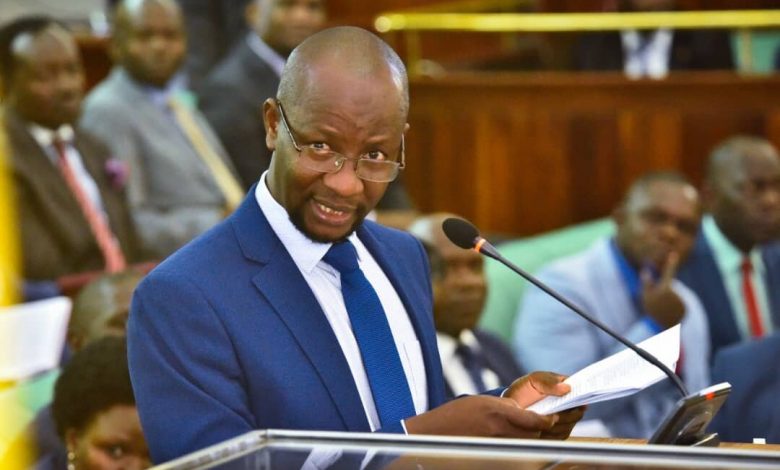They’re reviving military courts under Supreme Court cover – Ssemujju slams UPDF Bill
The UPDF (Amendment) Bill, 2025, will now move to the committee stage for further scrutiny and public input. Lawmakers across the political divide are expected to weigh in on its implications in the coming days, with human rights groups already signaling plans to petition Parliament for changes.

Tempers flared in Parliament this afternoon as lawmakers held the first reading of the Uganda Peoples’ Defence Forces (Amendment) Bill, 2025. Kira Municipality MP Ibrahim Ssemujju Nganda sharply criticized the proposed legislation, accusing government of using the Supreme Court as a smokescreen to reintroduce military courts and extend their jurisdiction over civilians.
“They’re using the Supreme Court to revive military courts,” said Ssemujju. “They are not seeking to address issues raised by the Supreme Court. They are tactically restoring military courts but claiming the Supreme Court allowed them.”
The Amendment Bill seeks to revise the Uganda Peoples’ Defence Forces Act, Cap. 330, with broad changes to the organization and regulation of the country’s military justice system. It proposes the establishment of a Health Care Service for UPDF members, a Medical Board, and clearer definitions for service offences, court martials, military courts, and the Reserve Force.
However, it is the restructuring and re-establishment of the courts martial — especially their jurisdiction and independence — that is drawing the most attention. The Bill cites Article 129(1)(d) of the Constitution to justify the existence and scope of military courts, including prescribing qualifications for court martial chairpersons and outlining the appeals process.
One of the most controversial aspects of the Bill is its provision for the trial of civilians under exceptional circumstances by military courts. The Bill proposes to define which offences may subject civilians to military law — a move many human rights advocates and opposition lawmakers view as dangerous and unconstitutional.
“This is not about discipline within the military. It’s about expanding military power into civilian life,” Ssemujju said on the floor of Parliament. “The same court that warned against trying civilians in military courts is now being used as cover to legalize it.”
The government argues that the proposed amendments are necessary to streamline military justice, improve discipline, and align the UPDF’s structure with current operational needs. The Bill also proposes the creation of a Military Courts Department within the Defence Forces, and a disciplinary unit to manage the conduct of its members. It seeks to prescribe the arms, ammunition, and classified stores under UPDF monopoly.
But critics argue that this Bill is part of a broader strategy to tighten military control and limit civilian oversight.
“This Bill, if passed in its current form, would erode the progress we’ve made in ensuring fair trial rights for all Ugandans,” said a legal expert from the Uganda Law Society who preferred anonymity. “Trying civilians in military courts undermines the independence of the judiciary and puts political opponents at greater risk of unfair prosecution.”
Over the years, courts martial in Uganda have been accused of being used to silence dissent, particularly during times of political unrest. In 2021, the Constitutional Court ruled that it was unconstitutional to try civilians in military courts, except in very specific situations. That ruling followed years of legal battles and advocacy by civil society organizations.
Ssemujju’s remarks come at a time when the relationship between civilian institutions and military power is under increasing scrutiny. With security forces playing a visible role in electoral processes and public order management, questions remain about the balance of power and the role of the military in a democratic society.
The UPDF (Amendment) Bill, 2025, will now move to the committee stage for further scrutiny and public input. Lawmakers across the political divide are expected to weigh in on its implications in the coming days, with human rights groups already signaling plans to petition Parliament for changes.
Whether the Bill will pass in its current form remains to be seen, but the debate it has sparked is likely to shape Uganda’s military-civil relations for years to come.







